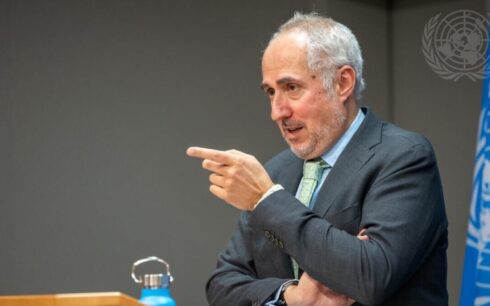The United Nations Human Rights Council is set to open its 59th session on Monday, June 16, in Geneva, where delegates will consider an agenda that includes the worsening rights crisis in Afghanistan, particularly the treatment of women and girls under Taliban rule.
According to the Council’s official schedule, the session will run through July 9 and will feature reports and interactive dialogues addressing human rights violations in more than a dozen countries, including Sudan, Myanmar, Iran and the Democratic Republic of Congo.
Among the most closely watched items will be a presentation by Richard Bennett, the UN special rapporteur on the situation of human rights in Afghanistan.
Bennett’s report, titled “Access to Justice and Support for Women and Girls and the Impact of Multiple and Intersecting Forms of Discrimination,” concludes that the restrictions imposed by the Taliban on women and girls amount to a system of gender apartheid. It calls on the international community to recognize such policies as crimes under international law.
“The Council must take urgent and decisive action,” said Sima Nouri, a human rights activist who is among those calling for an independent fact-finding mission. “We need a mechanism to document the full scope of Taliban abuses — from gender-based discrimination and ethnic killings to the violent suppression of peaceful protests. Afghanistan’s case should be referred to the International Criminal Court.”
Since retaking power in 2021, the Taliban have barred most Afghan women and girls from work, education, and even freedom of movement without a male escort. Masouda Kohistani, another rights advocate, called the situation “a human rights emergency that demands global attention.”
Though Afghanistan will be discussed on the opening day, it is one part of a broader session that includes topics ranging from the human rights impacts of climate change to racial discrimination, digital rights, and the situations in Palestine, Venezuela and Belarus. No general debates are scheduled this session, but several high-level interactive dialogues will take place throughout the four weeks.
The Human Rights Council, which meets three times a year, is the UN’s primary intergovernmental body dedicated to the promotion and protection of human rights around the world. Its 59th session will include reports from special rapporteurs, commissions of inquiry and the UN High Commissioner for Human Rights.
Rights advocates say they hope the international community will not lose focus on Afghanistan amid competing global crises. “This is a pivotal moment,” Nouri said. “The world must not abandon Afghan women.”





